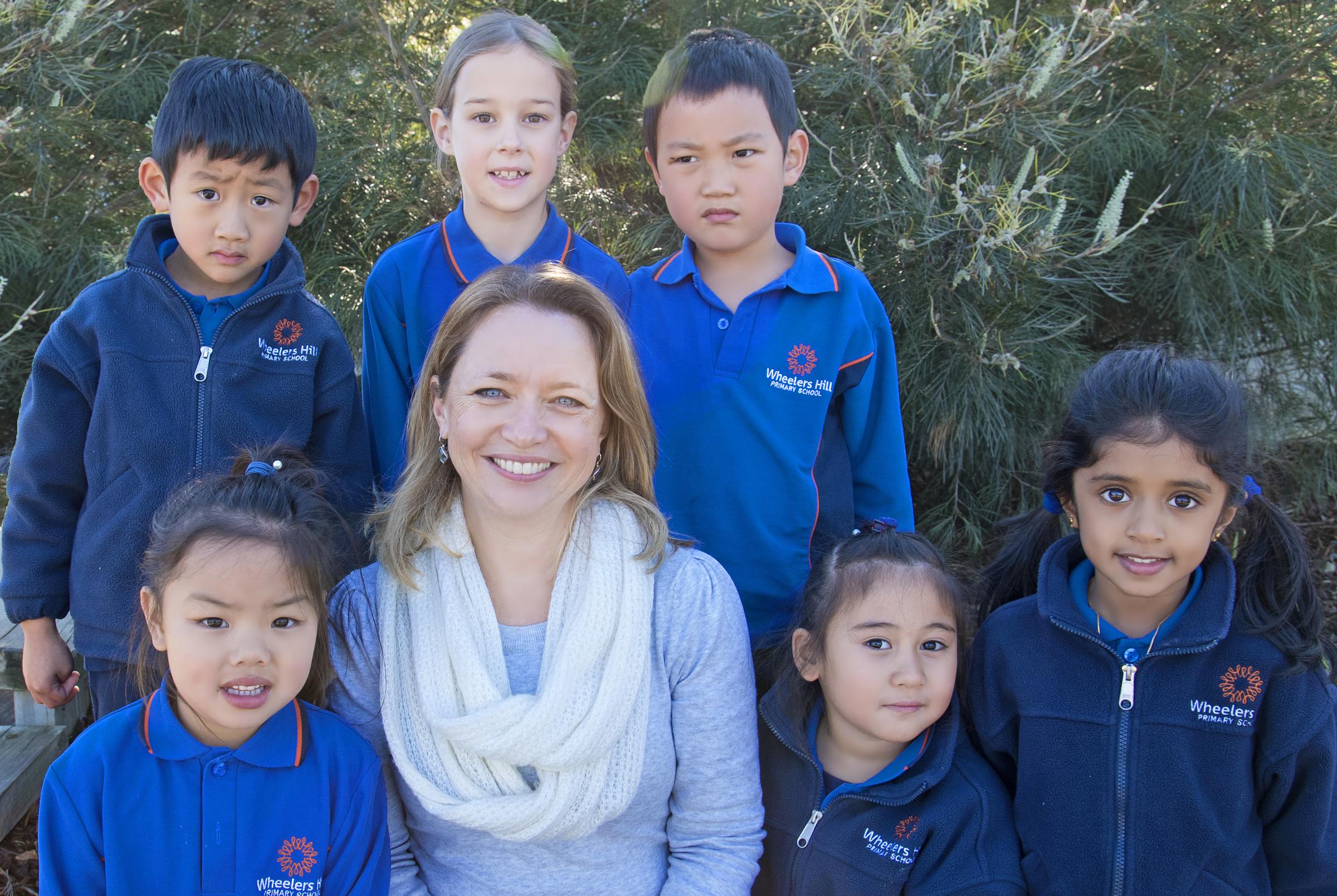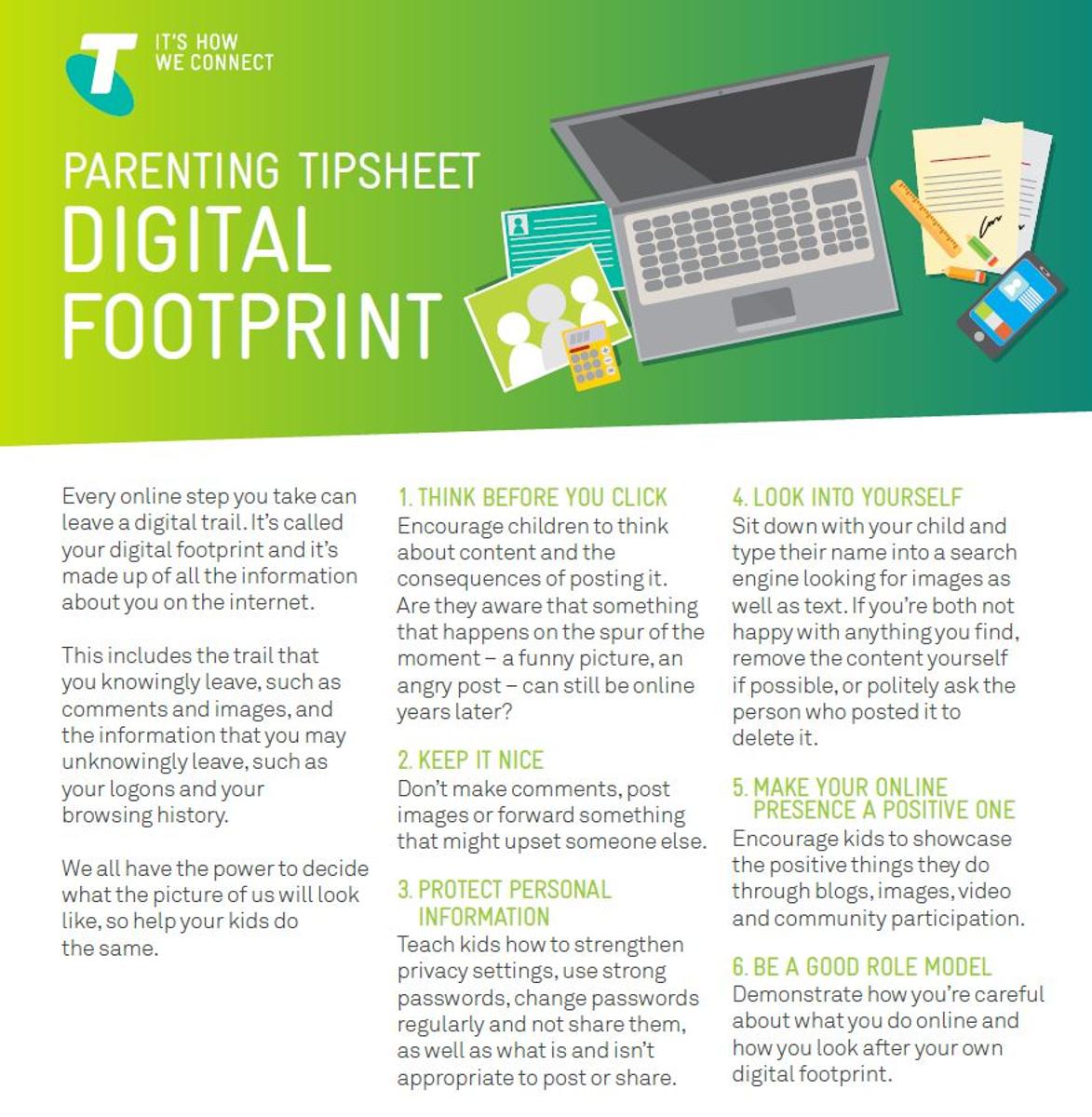Assistant Principal's Report Katrina Spicer - Welfare and Wellbeing

Digital Responsibility
I’m sure everybody is looking forward to a restful and rejuvenating school holiday period. Whilst many of our students will be having lots of ‘down time’ over the next few weeks, it is understandable that they may be spending more time on their digital devices and online. This is probably a timely opportunity for us as adults to rethink and remind ourselves about responsible online behaviour and responsible use of digital technologies.
It is important that children balance the time spent on devices with other activities. Try to ensure that children get outdoors regularly and engage in some physical exercise each day. The ability for children to communicate online means that kids can stay in touch during the school holidays, but nothing beats face-to-face interaction. Social skills and interpersonal skills are developed as children learn to read body language and facial expressions. This cannot happen in an online chat room! Creativity can thrive as children work together to problem solve and explore. Friendships can be strengthened as kids play together in the park, or kick a ball at the local footy oval.
We wish to remind parents that social media platforms such as Facebook, Instagram and Snap Chat are only allowed for students 13 years and above. None of our students at WHPS are above the age of 13 years so no child should be accessing these applications at any time. Social media applications at school are blocked the Department of Education.
However if you are allowing your child to access these applications we remind you to monitor and supervise all conversations your child is having, remind them of being safe online and to speak respectfully to others. Inappropriate comments on social media can have far reaching consequences and students aged below 13 don't have the social and emotional capability to deal with them.
Please refer to the following website for more information on managing social media usage with your child: https://www.esafety.gov.au/parents
Digital technologies are a very important part of the modern world, and so it is important that we give our children the skills to manage their behaviour and interactions appropriately online. Here are some suggestions for how you as parents can assist;
- Talk to your children about their digital lives.
- Do unto others...
- Think Before you Click
- Encourage children to think about the content and the potential consequences of everything they post online. Use the ‘Grandma Rule’. “Would I be happy for my grandma to see this?” If not, then it’s probably not appropriate to post.
- Promote Positive Bystander Behaviour
- Encourage your children to speak up if they witness inappropriate behaviour online or in the real world. Talk to your children about what they might do or say if they see inappropriate behaviour occurring.
- Talk and stay calm
- If your child has been bullied online, encourage them to stay calm and positive. It’s important for victims of cyberbullying to know that they are not responsible for what has happened. A reaction is often what the bully is after. Not responding or retaliating can sometimes stop the cycle.
- Take Concrete Steps You can report abuse on social media platforms, and if there are threats of violence, inform the police immediately. Be mindful that responding on your child’s behalf, such as contacting the bully directly or approaching their parents may further inflame the situation.
Go to the following website for further information and support for parents: https://www.esafety.gov.au/parents
- If your child is experiencing things that make them feel uncomfortable online, you should take steps to help. Such steps may include removing individuals from your child’s contacts list, blocking people, keeping evidence by taking screenshots or printing the evidence.
- Encourage your children to treat others the way they would like to be treated online. Discuss what it means to be respectful to and respected by others. Show zero-tolerance to mean or rude behaviour.
- The more you are aware of what is going on online, the more likely your children are to talk to you about their online experiences. Make sure your children know how they will be supported if they report something to you. Talk to your children about how they will go about letting you or another trusted adult know if they come across something that makes them feel uncomfortable.
Parenting Ideas Article
HELPING YOUR CHILD AVOID BEING CYBERBULLIED
By Martine Oglethorpe
Cyberbullying of children and teenagers is one of the greatest fears facing parents today. The thought of their child being subjected to heinous words, threats to their physical safety, as well as their social and emotional wellbeing, is something no parent wants their child to experience.
Most of the bullying behaviours we now see are happening from behind a keyboard, playing out in social media feeds and gaming chat rooms. It is little wonder parents feel overwhelmed and out of their depth, especially when for most, online is an environment that is relatively unfamiliar.
So what can we do to help our kids avoid these types of behaviours, as well as give them the skills to deal with cyberbullying should they be exposed?
- Remind them of all of the things they have control over:
- While it may not feel like it, we have a lot of control over what happens online. We can determine who we talk to, what we ignore, what we share, how we comment, who we follow, who we block or hide from our feeds. All of that helps us determine who is allowed to play a role in our online experiences and ultimately what behaviours we accept on our feeds.
- Give your child time away from the screens:
- Role play possible responses:
- Regularly check the privacy settings:
While nothing is guaranteed particularly when it comes to the online world, we can certainly be taking steps to help our kids. We can give them skills, encourage positive behaviours and thinking that allow them to minimise their exposure to the bullying behaviour of others.
Katrina Spicer
Assistant Principal - Welfare and Wellbeing
- Every app, game and social network has a settings button that enables you to determine how positive an experience your child can have on that platform and how much control they have. Visit these settings regularly to look at the options available.
- Discuss with your child whether they should respond to bullying or nasty online comments. If they do, then consider how they could respond. Consider the statements or types of people they ignore, block or report.
- Everyone needs a break from screens. We want to encourage regular times when a child doesn’t need to be tethered to their device. Building a wider community away from the screens helps a child or teen build their sense of self-worth. Keeping devices away from the dinner table also gives them a break from being socially switched on and allows them to connect with family without a device. Removing devices at night helps their active brains to switch off and prepare for sleep.

